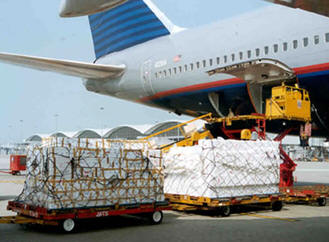|
|||||||||||||||||
|
|
|
|||
|
Cargo Screening Deadline Set On International Inbound Passenger Aircraft By Jim Douglas |
||||
 |
May 21, 2012 - The Transportation Security Administration (TSA) announced it has set a deadline for passenger air carriers to conduct 100 percent cargo screening on international flights bound for the United States. Beginning December 3, 2012, all cargo shipments loaded on passenger aircraft must undergo screening for explosives, fulfilling a requirement of the Implementing Recommendations of the 9/11 Commission Act. TSA has worked closely with other governments, international organizations, and industry partners to increase the security of air cargo without restricting the movement of goods and commerce. The screening deadline announced today requires 100 percent screening of all air cargo shipments bound for the U.S. It builds additional risk-based, intelligence-driven procedures into the prescreening process to determine screening protocols on a per-shipment basis. |
|||
|
This process requires enhanced screening for shipments
designated as higher risk, while lower risk shipments will
undergo other physical screening protocols.
These risk-based security efforts are one
aspect of the Administration?s recently announced Global
Supply-Chain Security initiative. Currently, all cargo on
passenger aircraft- both domestic and international- departing
U.S. airports undergoes screening.
Domestically, cargo screening is conducted by air carriers or those voluntarily participating in the Certified Cargo Screening Program, under strict regulatory oversight of TSA. TSA has more than 500 inspectors throughout the country to ensure compliance with air cargo security regulations. In addition to its domestic inspector workforce, TSA has more than 100 internationally-focused inspectors who assess and document security measures at applicable foreign airports. TSA will continue to work with other governments, international organizations, and industry partners to strengthen air cargo security by putting more risk-based and intelligence driven procedures into the screening process. |
||||


